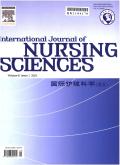A scoping review of autoethnography in nursing
IF 3.1
3区 医学
Q1 NURSING
引用次数: 0
Abstract
Objective
Autoethnography combines personal experiences with cultural analysis, emerging as a response to the limitations of traditional ethnography. This review aimed to explore, describe, and delineate the utilization of autoethnography by nurses published in peer-reviewed journals.
Methods
A scoping review was conducted according to the Arksey and O’Malley framework. On October 12, 2023, autoethnographic studies in nursing were identified through searches of CINAHL, PubMed, PsycINFO, and Scopus. Peer-reviewed articles published in English language were retrieved. We applied no date restriction. Data were extracted on nursing, epiphany, results, style of writing, implications for nursing, and ethical considerations.
Results
Twenty-six articles met the inclusion criteria. Mental health nursing, covered by nine articles, elucidated experiences of stigma, ethical dilemmas, and professional identity. Nursing education, represented by seven articles, highlighted identity struggles, systemic biases, and evolving pedagogies. Palliative care, addressed by three articles, provided insights into communication challenges and emotional complexities in end-of-life care. The remaining articles explored rehabilitation, cultural competence, and chronic pain management. A conceptual framework integrating ontological, epistemological, ethical, and practical dimensions was developed, emphasizing the interplay between personal and professional roles.
Conclusions
This review underscores autoethnography’s value in uncovering the cultural and ethical dimensions of nursing. This framework advocates for a reflective, culturally attuned approach to healthcare, fostering transformative changes in nursing. Further research should explore underrepresented nursing specialties to harness autoethnography’s potential fully.
自我民族志在护理中的应用综述
自我民族志将个人经历与文化分析相结合,作为对传统民族志局限性的回应而出现。本综述旨在探讨、描述和描述发表在同行评议期刊上的护士对自我民族志的使用。方法根据Arksey和O 'Malley框架进行范围综述。2023年10月12日,通过检索CINAHL、PubMed、PsycINFO和Scopus,发现了护理领域的自体人种志研究。检索以英文发表的同行评议文章。我们没有使用日期限制。从护理、顿悟、结果、写作风格、护理含义和伦理考虑等方面提取数据。结果26篇文章符合纳入标准。心理健康护理,涵盖了九篇文章,阐明了耻辱,道德困境和职业认同的经验。护理教育,以七篇文章为代表,强调了身份斗争,系统偏见和不断发展的教学法。三篇文章讨论了临终关怀,提供了对临终关怀中沟通挑战和情感复杂性的见解。其余文章探讨康复、文化能力和慢性疼痛管理。一个整合本体论、认识论、伦理和实践维度的概念框架被开发出来,强调个人和职业角色之间的相互作用。结论:本综述强调了自我民族志在揭示护理文化和伦理维度方面的价值。该框架倡导对医疗保健采取一种反思的、与文化相适应的方法,促进护理领域的变革。进一步的研究应探索代表性不足的护理专业,以充分利用自身民族志的潜力。
本文章由计算机程序翻译,如有差异,请以英文原文为准。
求助全文
约1分钟内获得全文
求助全文
来源期刊

International Journal of Nursing Sciences
Nursing-Nursing (all)
CiteScore
6.10
自引率
2.60%
发文量
408
审稿时长
25 days
期刊介绍:
This journal aims to promote excellence in nursing and health care through the dissemination of the latest, evidence-based, peer-reviewed clinical information and original research, providing an international platform for exchanging knowledge, research findings and nursing practice experience. This journal covers a wide range of nursing topics such as advanced nursing practice, bio-psychosocial issues related to health, cultural perspectives, lifestyle change as a component of health promotion, chronic disease, including end-of-life care, family care giving. IJNSS publishes four issues per year in Jan/Apr/Jul/Oct. IJNSS intended readership includes practicing nurses in all spheres and at all levels who are committed to advancing practice and professional development on the basis of new knowledge and evidence; managers and senior members of the nursing; nurse educators and nursing students etc. IJNSS seeks to enrich insight into clinical need and the implications for nursing intervention and models of service delivery. Contributions are welcomed from other health professions on issues that have a direct impact on nursing practice.
 求助内容:
求助内容: 应助结果提醒方式:
应助结果提醒方式:


